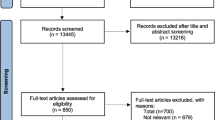Abstract
Children living with HIV experience gaps in HIV testing globally; scaling up evidence-based testing strategies is critical for preventing HIV-related mortality. Financial incentives (FI) were recently demonstrated to increase uptake of pediatric HIV testing. As part of this qualitative follow-up study to the FIT trial (NCT03049917) conducted in Kenya, 54 caregivers participated in individual interviews. Interview transcripts were analyzed to identify considerations for scaling up FI for pediatric testing. Caregivers reported that FI function by directly offsetting costs or nudging caregivers to take action sooner. Caregivers found FI to be feasible and acceptable for broader programmatic implementation, and supported use for a variety of populations. Some concerns were raised about unintended consequences of FI, including caregivers bringing ineligible children to collect incentives and fears about the impact on linkage to care and retention if caregivers become dependent on FI.
Similar content being viewed by others
References
UNAIDS. Understanding Fast-Track: Accelerating action to end the AIDS epidemic by 2030. 2015. https://www.unaids.org/sites/default/files/media_asset/201506_JC2743_Understanding_FastTrack_en.pdf.
Kenya – PHIA. https://phia.icap.columbia.edu/countries/kenya/. Cited 2 Jun 2020.
Kenyan Ministry of Health. KENYA AIDS RESPONSE PROGRESS REPORT 2018. 2018. https://www.lvcthealth.org/wp-content/uploads/2018/11/KARPR-Report_2018.pdf.
Violari A, Cotton MF, Gibb DM, Babiker AG, Steyn J, Madhi SA, et al. Early antiretroviral therapy and mortality among HIV-infected infants. N Engl J Med. 2008;359(21):2233–44.
Wagner A, Slyker J, Langat A, Inwani I, Adhiambo J, Benki-Nugent S, et al. High mortality in HIV-infected children diagnosed in hospital underscores need for faster diagnostic turnaround time in prevention of mother-to-child transmission of HIV (PMTCT) programs. BMC Pediatr. 2015;15(1):1–7.
Newell M-L, Coovadia H, Cortina-Borja M, Rollins N, Gaillard P, Dabis F, et al. Mortality of infected and uninfected infants born to HIV-infected mothers in Africa: a pooled analysis. Lancet Lond Engl. 2004;364(9441):1236–43.
Merten S, Ntalasha H, Musheke M. Non-uptake of HIV testing in children at risk in two urban and rural settings in Zambia: a mixed-methods study. PLoS ONE. 2016;11(6):e0155510.
Wagner AD, O’Malley G, Firdawsi O, Mugo C, Njuguna IN, Maleche-Obimbo E, et al. Disclosure, consent, opportunity costs, and inaccurate risk assessment deter pediatric HIV testing: a mixed-methods study. J Acquir Immune Defic Syndr (1999). 2018;77(4):393–9.
Kranzer K, Simms V, Bandason T, Dauya E, McHugh G, Munyati S, et al. Economic incentives for HIV testing by adolescents in Zimbabwe: a randomised controlled trial. Lancet HIV. 2017;5(2):e79-86.
Choko AT, Corbett EL, Stallard N, Maheswaran H, Lepine A, Johnson CC, et al. HIV self-testing alone or with additional interventions, including financial incentives, and linkage to care or prevention among male partners of antenatal care clinic attendees in Malawi: an adaptive multi-arm, multi-stage cluster randomised trial. PLoS Med. 2019;16(1):e1002719.
Montoy JCC, Dow WH, Kaplan BC. Cash incentives versus defaults for HIV testing: a randomized clinical trial. PLoS ONE. 2018;13(7):e0199833.
Chamie G, Ndyabakira A, Marson KG, Emperador DM, Kamya MR, Havlir DV, et al. A pilot randomized trial of incentive strategies to promote HIV retesting in rural Uganda. PLoS ONE. 2020;15(5):e0233600.
Nglazi MD, van Schaik N, Kranzer K, Lawn SD, Wood R, Bekker L-G. An incentivized HIV counseling and testing program targeting hard-to-reach unemployed men in Cape Town, South Africa. J Acquir Immune Defic Syndr (1999). 2012;59(3):e28–34.
Ostermann J, Brown DS, Mühlbacher A, Njau B, Thielman N. Would you test for 5000 Shillings? HIV risk and willingness to accept HIV testing in Tanzania. Health Econ Rev. 2015;5:24.
Bassett IV, Wilson D, Taaffe J, Freedberg KA. Financial incentives to improve progression through the HIV treatment cascade. Curr Opin HIV AIDS. 2015;10(6):451–63.
Swann M. Economic strengthening for HIV testing and linkage to care: a review of the evidence. AIDS Care. 2018;30(sup3):85–98.
Ndyabakira A, Getahun M, Byamukama A, Emperador D, Kabageni S, Marson K, et al. Leveraging incentives to increase HIV testing uptake among men: qualitative insights from rural Uganda. BMC Public Health. 2019;19:1763.
Wagner AD, Shah SK, Njuguna IN, Porter KM, Neary J, Maleche-Obimbo E, et al. Letter to the Editor: Financial incentives to motivate pediatric HIV testing—assessing the potential for coercion, inducement, and voluntariness. J Acquir Immune Defic Syndr. 2018;78(3):e15–8.
Marteau TM, Ashcroft RE, Oliver A. Using financial incentives to achieve healthy behaviour. BMJ. 2009;338:b1415.
Atkins DL, Wagner AD, Zhang J, Njuguna IN, Neary J, Omondi VO, et al. Brief Report: Use of the consolidated framework for implementation research (CFIR) to characterize health care workers’ perspectives on financial incentives to increase pediatric HIV testing. J Acquir Immune Defic Syndr (JAIDS). 2020;84(1):e1.
Wagner AD, Njuguna IN, Neary J, Omondi VO, Otieno VA, Babigumira J, et al. Financial incentives to increase uptake of pediatric HIV testing (FIT): study protocol for a randomised controlled trial in Kenya. BMJ Open. 2018;8(10):1–9.
Ministry of Health NASCOP. KENYA HIV ESTIMATES REPORT 2018. 2018. https://nacc.or.ke/wp-content/uploads/2018/11/HIV-estimates-report-Kenya-20182.pdf.
Njuguna IN, Wagner AD, Neary J, Omondi VO, Otieno VA, Orimba A, et al. Financial incentives to increase pediatric HIV testing: a randomized trial. AIDS. 2021;35(1):125–30.
Simoni JM, Beima-Sofie K, Amico KR, Hosek SG, Johnson MO, Mensch BS. Debrief reports to expedite the impact of qualitative research: do they accurately capture data from in-depth interviews? AIDS Behav. 2019;23(8):2185–9.
Ryan GW, Bernard HR. Techniques to identify themes. Field Methods. 2016. https://doi.org/10.1177/1525822X02239569.
Czaicki NL, Mnyippembe A, Blodgett M, Njau P, McCoy SI. It helps me live, sends my children to school, and feeds me: a qualitative study of how food and cash incentives may improve adherence to treatment and care among adults living with HIV in Tanzania. AIDS Care. 2017;29(7):876–84.
Galárraga O, Sosa-Rubí SG. Conditional economic incentives to improve HIV prevention and treatment in low-income and middle-income countries. Lancet HIV. 2019;6(10):e705–14.
Thirumurthy H, Masters SH, Rao S, Bronson MA, Lanham M, Omanga E, et al. Effect of providing conditional economic compensation on uptake of voluntary medical male circumcision in Kenya. JAMA. 2014;312(7):703–11.
Thirumurthy H, Ndyabakira A, Marson K, Emperador D, Kamya M, Havlir D, et al. Financial incentives for achieving and maintaining viral suppression among HIV-positive adults in Uganda: a randomized trial. Lancet HIV. 2019;6(3):e155–63.
El-Sadr WM, Donnell D, Beauchamp G, Hall HI, Torian LV, Zingman B, et al. Financial incentives for linkage to care and viral suppression among HIV-positive patients. JAMA Intern Med. 2017;177(8):1083–92.
Acknowledgements
We thank the participants in this research study and the entire FIT team for their support in this research. We would like to offer special thanks to Kenyatta National Hospital, University of Washington Department of Global Health, County government of Kisumu, Global WACh, Kenya Research & Training Center, University of Nairobi, participating hospitals and clinics, Global Opportunities in Health fellowship, and International AIDS Society CIPHER grant.
Funding
This work was sponsored by a Center for AIDS Research (CFAR) International Pilot Award, which is supported through the National Institutes of Health (NIH) award P30AI027757, and by the Collaborative Initiative for Pediatric HIV Education and Research (CIPHER) International AIDS Society (323-NJU-TRIAL). Additional support was provided by the UW Global Center for Integrated Health of Women, Adolescents and Children (Global WACh) and the University of Washington CFAR Behavioral Science Core (P30 AI027757). This publication was supported in part by the National Institute of Child Health and Development (NICHD) F32HD088204 to ADW and the Fogarty International Center (FIC) D43TW009783 to INN.
Author information
Authors and Affiliations
Contributions
VOO and VAO recruited and enrolled study participants. WOA and MO conducted interviews and performed transcription and translation of all transcripts. JZ, DLA, KBS, and ADW conducted data analysis. JZ wrote the first draft of the paper and DLA, KBS, and ADW refined the second and subsequent drafts. All authors reviewed, meaningfully revised, and approved the final paper.
Corresponding author
Ethics declarations
Conflict of interest
The authors declared that they have no conflict of interest.
Additional information
Publisher's Note
Springer Nature remains neutral with regard to jurisdictional claims in published maps and institutional affiliations.
Rights and permissions
About this article
Cite this article
Zhang, J., Atkins, D.L., Wagner, A.D. et al. Financial Incentives for Pediatric HIV Testing (FIT): Caregiver Insights on Incentive Mechanisms, Focus Populations, and Acceptability for Programmatic Scale Up. AIDS Behav 25, 2661–2668 (2021). https://doi.org/10.1007/s10461-021-03356-z
Accepted:
Published:
Issue Date:
DOI: https://doi.org/10.1007/s10461-021-03356-z




